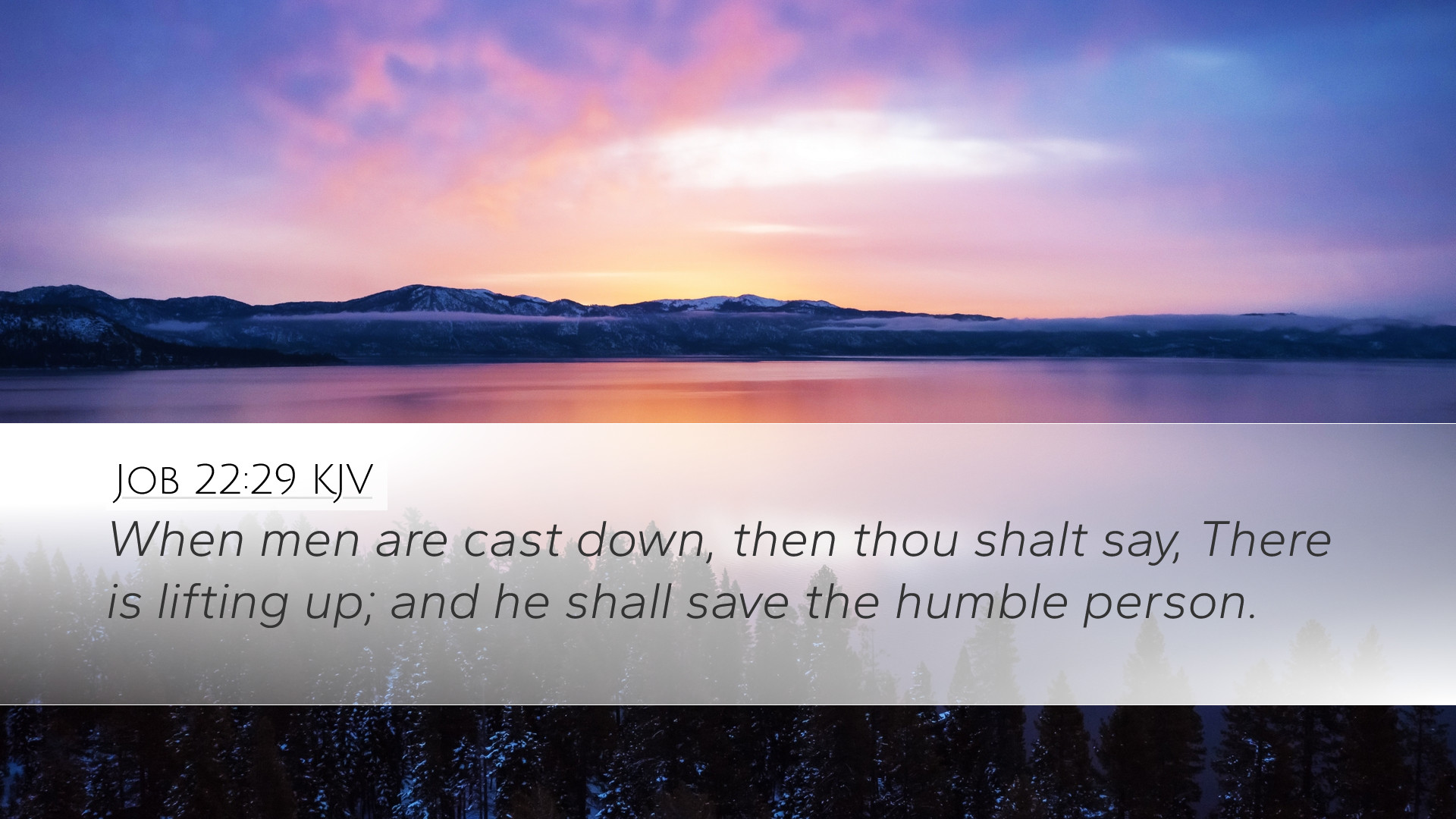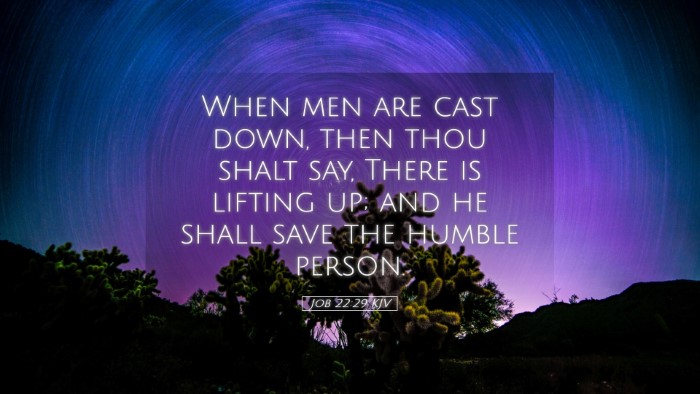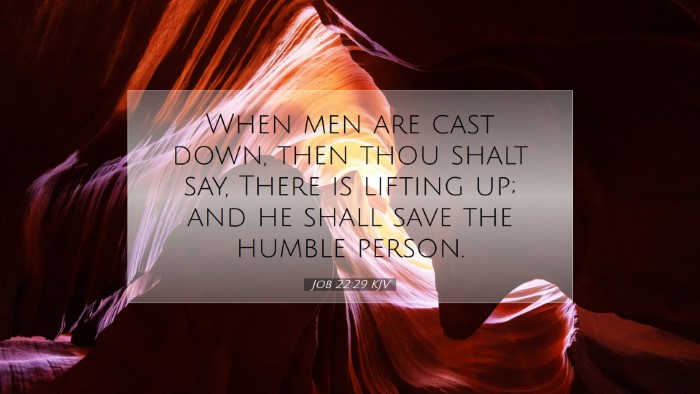Old Testament
Genesis Exodus Leviticus Numbers Deuteronomy Joshua Judges Ruth 1 Samuel 2 Samuel 1 Kings 2 Kings 1 Chronicles 2 Chronicles Ezra Nehemiah Esther Job Psalms Proverbs Ecclesiastes Song of Solomon Isaiah Jeremiah Lamentations Ezekiel Daniel Hosea Joel Amos Obadiah Jonah Micah Nahum Habakkuk Zephaniah Haggai Zechariah MalachiJob 22:29
Job 22:29 KJV
When men are cast down, then thou shalt say, There is lifting up; and he shall save the humble person.
Job 22:29 Bible Commentary
Commentary on Job 22:29
Verse: "When men are cast down, then thou shalt say, There is lifting up; and he shall save the humble person."
Introduction
The book of Job presents profound insights into the human condition and the nature of suffering. Job 22:29 captures a critical turning point in the narrative, as Eliphaz, one of Job's friends, speaks about the concepts of despair and hope. Through a summary of esteemed public domain commentaries, we aim to explore the theological nuances of this verse and its implications for believers today.
Contextual Analysis
In the preceding chapters, Job has been suffering greatly, having lost his wealth, health, and family. His friends' attempts to comfort him have turned accusative, suggesting he must have sinned. Eliphaz’s words in this verse offer a juxtaposition to the despair Job exhibits.
- Job's Condition: He is in the depths of grief and questioning his righteousness before God.
- Eliphaz's Perspective: He proposes that amidst despair, one can anticipate restoration and elevation through humility and penitence.
Thematic Exploration
This verse communicates two central themes: the reality of human suffering and the hope embedded within humility.
- Suffering: The phrase "when men are cast down" acknowledges the universal experience of human distress. This reflection aligns with Matthew Henry's commentary, emphasizing that afflictions are common to humanity.
- Hope: The assertion "there is lifting up" implies a promise of divine restoration. Albert Barnes highlights that God can elevate the humble, suggesting that despair is not final but a precursor to deliverance.
Insights from Commentators
The insights from notable commentators add layers of understanding to this verse:
- Matthew Henry: He observes that in times of lowliness, the faithful should encourage hope. His reflection emphasizes the importance of recognizing God's ability to elevate through divine grace, particularly for the humble.
- Albert Barnes: Barnes infers that the humble, recognizing their need for God, attract His grace and deliverance. This reinforces the biblical principle that "God resists the proud but gives grace to the humble" (James 4:6).
- Adam Clarke: Clarke comments on the transformative power of humility. He underlines the divine response to those who approach God with a contrite heart, reinforcing the theological premise that God aids those who acknowledge their limitations and reliance on Him.
Practical Implications
For pastors, scholars, and students, Job 22:29 serves as a source of encouragement in preaching and teaching. The implications of this verse are far-reaching:
- Pastoral Care: This verse provides a foundation for offering hope to those in despair, reminding congregants that God is near to the brokenhearted.
- Academic Reflection: Scholars can examine the hermeneutical approaches to suffering and hope, engaging with the narrative's theological constructs in the context of both Job's experience and contemporary issues.
- Personal Application: Individuals are encouraged to adopt a humble posture before God, fostering an environment for divine intervention in their lives.
Theological Conclusion
Job 22:29 encapsulates a profound truth about the interplay between despair and hope within the human experience. The commentary from esteemed figures such as Matthew Henry, Albert Barnes, and Adam Clarke enlightens our understanding of the text and invites deeper contemplation on the nature of God’s grace towards the humble. As believers grapple with their circumstances, this verse reassures them that, despite the depths of their sorrow, a divine lifting up awaits those who seek God with a humble heart.


